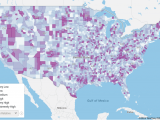
Coronavirus-related digital fraud: 22% of Americans targeted
26. März 2020Coronavirus-related digital fraud: 22% of Americans targeted
New York, 25.3.2020
According to a survey by TransUnion, Americans‘ purchasing behavior has changed in connection with COVID-19. 22 percent said that they are affected by digital fraud.
During the coronavirus pandemic, consumers are highly dependent on online retailers. Companies, in turn, must protect themselves against fraud while ensuring that the company’s web and mobile platforms are error-free. „It’s clear that consumer shopping behavior has changed worldwide and will continue to change in the foreseeable future,“ said Greg Pierson, senior vice president of business planning and development for TransUnion. „There is no doubt that fraudsters will continue to monitor consumer trends and adapt their programs accordingly.
Fraudsters are focusing on exploiting retailers‘ digital connections with consumers, especially now that these consumers are shopping almost exclusively online.
The report entitled „Global e-commerce in 2020“ contains some shocking results. One striking example is an increase of 347% in account takeovers and +391% in shipping fraud.
„With so many reported data breaches, it’s not just a question of whether your account is hijacked, but when,“ said Melissa Gaddis, senior director of customer success for TransUnion Fraud & Identity Solutions, in a press release. „As soon as a fraudster breaks into an account, he or she has access to anything he or she can think of that could lead to stolen credit card numbers and reward points, fraudulent purchases and the diversion of shipments to other addresses“.
Typical methods of taking over an account include: buying login details on the dark web; falsifying IDs; hacking; phishing. Shipping fraud and the 391% increase mentioned above occurs when a hacker takes over a customer account but keeps the victim’s shipping address to avoid detection. After the package is shipped, they intercept it at the carrier’s location and change the delivery address. Hackers deduct loyalty points or create multiple fake accounts to use the same promotion over and over again.
78% of all e-commerce transactions in 2019 came from mobile devices. That’s a 33% increase from 2018. Background: 118% increase in high-risk transactions via mobile devices in 2019. As more and more e-commerce transactions are conducted via mobile devices, hackers want to replicate consumer behavior to escape detection.
With online commerce accounting for only 14% of global retail sales, there is still plenty of room for e-commerce growth, Gaddis said in the press release. „With so much room for growth, it is important that retailers stay ahead of emerging transaction and retail trends to provide consumers with a smooth experience and a fraud-proof barrier,“ Gaddis said in the press release.


